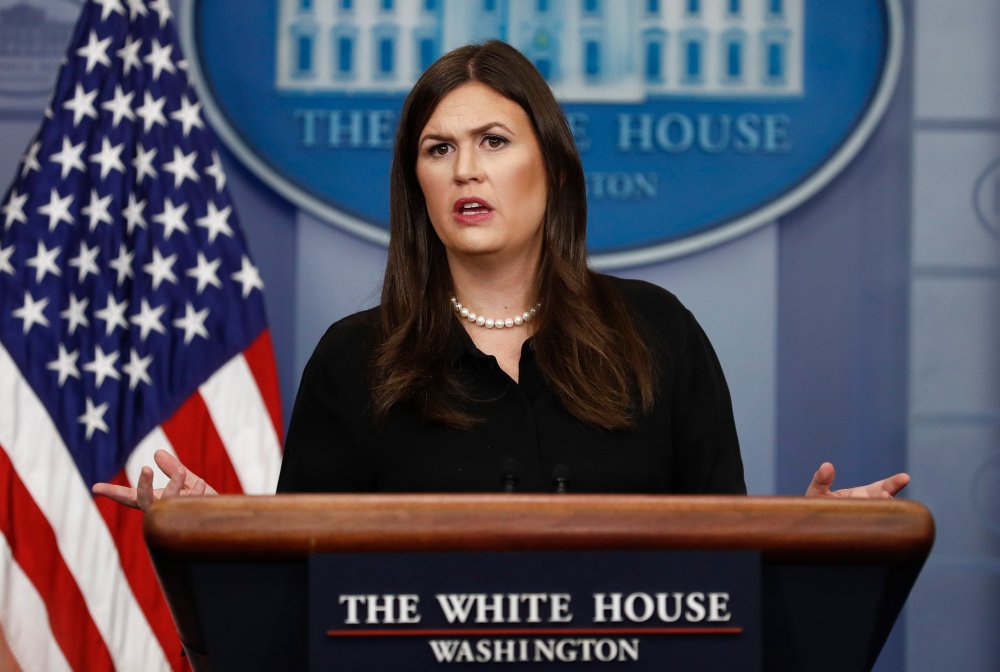Over the summer, in the aftermath of the violence in Charlottesville, a reporter asked Donald Trump why it took so long for him to denounce white supremacists. “I wanted to make sure, unlike most politicians, that what I said was correct,” the president said with a straight face.
He added, “When I make a statement, I like to be correct. I want the facts…. Before I make a statement, I need the facts.”
This remains one of my all-time favorite Trump quotes precisely because it’s so transparently ridiculous. To know anything about the president is to know he’s effectively allergic to the truth. And yet, for some of the president’s allies, the idea that Trump places a high value on accuracy is taken quite seriously.
White House Press Secretary Sarah Huckabee Sanders told reporters yesterday that the president “believes in making sure that information is accurate before pushing it out as fact.”
She didn’t appear to be kidding.
I suppose it’s tempting at this point to highlight the staggering number of lies Trump has told since taking office, but the Washington Post‘s Aaron Blake had an even more constructive approach in mind:
A little more than a month ago, after Trump retweeted anti-Muslim videos pushed by a leader of a fringe political group in Britain, Sanders made almost precisely the opposite argument about the veracity of the videos; she said that didn’t really matter. “Whether it’s a real video, the threat is real,” Sanders said. “His goal is to promote strong border security and strong national security.”
Trump disproved Sanders’s Thursday comment shortly after being inaugurated. At a White House news conference, he was confronted with his repeated claim that he had registered “the biggest electoral college win since Ronald Reagan” — one of many factually incorrect claims Trump has made about his 2016 win. Trump said in response, “I was given that information, I don’t know.”
Note, Blake’s piece wasn’t just pointing to instances in which Trump said something untrue, which is a little too easy. Blake more specifically focused on examples of Trump and the White House showing complete indifference to the line between fact and fiction.












